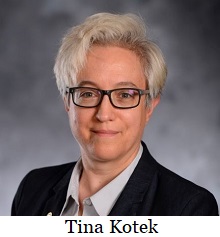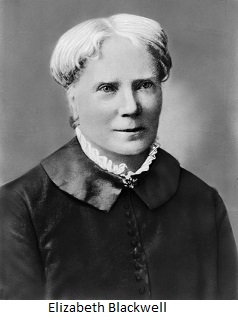
On this day, August 29, 1984, Oregon members of the Bhagwan Shree Rajneesh cult sprinkled salmonella bacteria on salad bar ingredients in local restaurants. Over 750 people were sickened.
Also on this day, August 29, 2020, a man was fatally shot as a caravan of Mr. Trump's supporters drove through Portland for a pro-Trump rally and clashed with counter protesters. Trump supporter, Aaron "Jay" Danielson, was shot and killed after he came downtown. On August 30, antifa supporter Michael Forest Reinoehl, the suspected shooter of Danielson, was shot and killed near Lacey, Wa., by law enforcement agents.
 Post an Event
Post an Event
| Benton County Republicans’ Private Fundraising Event, “Bent-on Boots and Bling” with Trey Taylor |
| Friday, September 5, 2025 at 5:00 pm |
| Featuring Trey Taylor
Music Private Event
Friday, September 5, 2025 5:00-5:30 pm VIP Reception
5:30-8:00 pm Heavy Appetizers,
Auction, Concert
Red: $750 VIP Reception
Front Row Table Sponsor
White: $500 Table Sponsor
Blue: $50 per person
Limited Seating. Get Yours Now!!!
Support Local
Dress up: Bling, Cowboy, Patriotic Benton County Republican
FUNDRAISER
www.BentonGOP.org
Get your tickets today at:
https://www.bentongop.org/event-details/benton-county-republicans-fundraiser/form
About Trey:
Trey is the youngest African American Man in Country Music History. The Denver Post wrote
"It's impossible to miss his enthusiasm. With a fondness for cowboy boots, gaudy colors and dazzling jewelry, Trey Taylor could stand toe to toe with any of the Pop, Country or even Rap
contemporaries of his generation.“ |
| Trysting Tree Golf Club, 34028 NE Electric Rd., Corvallis |
Changes the opt-out process to opt-in
Oregon passed the nation’s first automatic voter registration law in 2015, and was in use for the 2016 elections. Representative Kevin Mannix (R-Salem) has introduced
HB 2233 ending automatic voter registration through Oregon Motor Voter. It changes the opt-out process to an opt-in procedure. The bill reestablishes the process of registration at any office of the Department of Transportation where licenses or renewal applications can be purchased or received that existed prior to the enactment of Oregon Motor Voter.
HB 2233 removes electronic reporting to the Secretary of State of every name, age, signature, residence and citizenship information for the process of transferring it to county election clerks. Instead, DMV offices will make voter registration cards available and deliver them to the county election clerk in a timely manner.
Driver's license applications and renewal forms will contain a section to register to vote while applying or renewing a license, but they will not be automatically registered without their signature. Signatures are limited to only be used for voter registration purposes.
A D V E R T I S E M E N T

A D V E R T I S E M E N T
Janice Dysinger, Oregonians for Fair Elections, says HB2233 finally puts Oregonians in charge of their voter registration information. “Voters have been disenfranchised by allowing the government to change the information through the Automatic Motor Voter Laws. We have seen the skyrocketing of non-Affiliate voters after the Automatic Voter Registration Law passed, as voters had to respond to a postcard declaration of the political party 3 weeks after visiting a DMV or their party affiliation was recorded as NAV. Choosing a political party should have been taken care of by the voter at the time of registration.â€
HB 2233 requires procedures for voter registration applications to include a state identification card that allows an applicant to register to vote. The procedure must comply with the
National Voter Registration Act of 1993 (NVRA).
NVRA is the national motor voter law, which lays out voter registration requirement for federal offices. Section 5 of the NVRA requires that States offer voter registration opportunities at State motor vehicle agencies when transacting other business, including by mail, phone or internet.
Section 6 of the NVRA requires that States offer voter registration opportunities by mail-in application. It also requires first time voters in a federal election provide identification, which can be a current and valid photo identification, or a copy of a current utility bill, bank statement, government check, paycheck, or other government document that shows the name and address of the voter.
Section 8 of the NVRA requires states to implement procedures to maintain accurate and current voter registration lists. It prohibits removing registrants from the voter registration list solely because of a failure to vote, and restricts the timing on removals from the voter list based on a change of residence. However, if the registrant fails to respond to a notice and fails to vote in two federal general election, then the registrant can be removed from the voter registration list.
HB 2233 does not address Oregon’s lifetime retention issue, but the NVRA clearly indicates that eight years should be sufficient time for a person to affirm their civic duty. Watch for a hearing date this week.
--Donna Bleiler| Post Date: 2023-02-06 01:34:54 | Last Update: 2023-02-06 15:48:28 |
SALT deduction included in the 2017 federal Tax Cuts and Jobs Act
New updates about the Pass-Through Entity Elective (PTE-E) tax are available on the Oregon Department of Revenue website, including additional frequently asked questions, step-by-step examples of how to file PTE-E returns, and schedules that make filing easier and faster.
In July 2021, Oregon established a Pass-Through Entity Elective (PTE-E) Tax, a business alternative income tax in response to the $10,000 cap on the federal State and Local Tax (SALT) deduction included in the 2017 federal Tax Cuts and Jobs Act.
For tax years beginning on or after January 1, 2022, entities taxed as S corporations and partnerships may elect annually to be subject to the PTE-E tax at a rate of 9 percent tax on the first $250,000 of distributive proceeds and 9.9 percent tax on any amount exceeding $250,000.
A D V E R T I S E M E N T

A D V E R T I S E M E N T
The department's latest web updates answer the most common questions from tax preparers, who are starting to file PTE-E returns as the tax filing season begins.
The department provides an Excel spreadsheet that can be used to speed up filing of the OR-21. The data on the spreadsheet will populate to the OR-21-MD and the OR-21-MD-PT forms used in PTE-E tax filing.
The updates were posted this week on the department's PTE-E web page. For PTE-E questions contact: BusinessAlternative.IncomeTax@dor.oregon.gov.
--Ritch Hanneman| Post Date: 2023-02-05 11:12:41 | Last Update: 2023-02-03 22:05:27 |
18 Members of the council to be appointed by the governor
Governor Tina Kotek is seeking a diverse membership to a statewide Housing Production Advisory Council.
The Governor is accepting applications for her newly created Housing Production Advisory Council that she established through an executive order on January 10, the Governor's first full day in office.
The order established an annual housing production goal of 36,000 additional housing units at all levels of affordability across the state to address Oregon's current housing shortage and keep pace with projected population growth. That's an ambitious target – about an 80 percent increase over current construction trends – and would set Oregon on a path to build 360,000 additional homes over the next decade.
The Housing Production Advisory Council will be responsible for proposing an action plan to meet the state's housing production goals. It will be composed of 25 members, including the Governor or her designee, bipartisan members of the Oregon House and Senate, relevant state agency directors, and a Tribal member. The largest share of members (18) will be appointed by the Governor with the goal of assembling a highly effective, diverse and representative council, ready to get to work for Oregonians.
A D V E R T I S E M E N T

A D V E R T I S E M E N T
The Governor is looking to appoint housing developers with expertise in permanent supportive, affordable, and market rate housing, representatives of rural and coastal communities, communities of color, local government representatives, and experts in land use, fair housing, permitting, workforce development, and construction. Oregonians interested in applying for the Council are encouraged to submit an application, found here.
Applications are due February 15, 2023. Appointees will begin work on the Council in early March.
Moreover, the executive order dictates that two co-chairs be appointed, one living or working in an urban area and the other in a rural area. The Council is scheduled to provide a recommended framework for their action plan by April 1, 2023.
--Ritch Hanneman| Post Date: 2023-02-04 12:21:29 | Last Update: 2023-02-03 21:31:54 |
The future of carbon credits in question
Oregon land is about 25 percent National Forests at 16 million acres. Add to that about 7.3 million acres of private timber land. These carbon-sequestering forests purify the air, filter water, prevent soil erosion, and act as an important buffer. That is nearly 50 percent of Oregon with a mixed variety of forests, making the state a large carbon sink.
According to Pete Stewart, CEO of ResourceWise, his research led him to “
6 Predictions for 2023 Global Forest Industry,†he states, “we can likely expect the beginning of the end for carbon credits this year. Many critics often question the legitimacy of carbon credits altogether, wondering if companies merely use them as a veneer to conceal their ongoing pollution.†Forest2Market also predicts that 2023 will bring an end to carbon credits in general. “The world is coming around to the fact that carbon credits, of any kind, are just a license to pollute more.†In regards to forests, their research shows that “carbon is stored longer in the finished product, especially lumber and cross-laminated timber.â€
Despite the national trend, Senator Jeff Golden (D-Ashland) chaired the 2021-2022 Senate Interim Committee on Natural Resources and Wildfire Recovery that introduced
SB 88 to establish a state policy to increase net carbon sequestration and storage in natural and working lands. The bill requires certain agencies to monitor progress advancing state net carbon sequestration and storage policy and report their findings to the Oregon Global Warming Commission.
SB 88 directs Oregon Global Warming Commission with related agencies to develop natural and working lands net carbon sequestration and storage inventory using cap and trade methods for assessing greenhouse gas fluxes. Everything you do is now being measured to reduce carbon emissions and if reduction isn’t possible, then in increasing carbon storage.
A D V E R T I S E M E N T

A D V E R T I S E M E N T
Companies will proudly announce their corporate aim toward reaching net zero for the benefit of clients, known as ‘greenwashing.’ Rather than reducing a company’s actual emissions, they buy credits from conserved forest land. However, Stewart’s study indicates companies have little intentions of actively reducing their carbon footprint. Instead, the push seems to be toward hitting those ‘net zero’ carbon emissions by purchasing offsets and passing the cost to consumers.
An investigation by The Guardian showed that up to 90% of the credits offered by one of the leaders in setting carbon standards were simply ‘phantom credits.’ There is no tangible substance and were not helping to offset carbon pollution beyond the numbers on a spreadsheet. That leaves the question of the purpose of carbon credits.
There needs to be a more accurate measurement for pollutants, better identification on how carbon is stored in wood beyond the forests, and improve measurements and reporting mechanisms, according to Stewart. A step in that direction may be in
SB 724, introduced by Senator Fred Girod (R-Stayton). SB 724 adds to the calculation of greenhouse gas levels to include atmospheric carbon sequestered by lands and waters in determining progress towards greenhouse gas emissions reduction goals.
No matter how you look at it, Oregon's sink is draining more than carbon.
--Donna Bleiler| Post Date: 2023-02-03 12:07:32 | Last Update: 2023-02-03 16:17:18 |
Elizabeth Blackwell celebrated as first female doctor
Today, Feb. 3, is National Women Physicians Day, and is also the birthday of Elizabeth Blackwell, born February 3, 1821. She became the first female medical doctor in the United States. The day honors the courage and accomplishments of female doctors who paved the way for so many, and who continue to set an example for younger generations. In 2017, for the first time in history, women made up more than half of all medical school students in the U.S.
Blackwell played an important role as a social awareness and moral reformer promoting education for women in medicine. She went from schoolteacher studying the anatomy to seeing the prejudice her sex endured receiving medical care, which inspired her to apply to medical school. She was only accepted by one, Geneva Medical College, where the male students voted to accept Blackwell. So, in 1847, she began her career in medicine.
Blackwell is known for her lectures to female audience on the importance of educating girls, and organized nurses during the American Civil War. Her name is still recognized on the Elizabeth Blackwell Medal, awarded annually to a woman who has made a significant contribution in medicine.
When you see a female physician, please remind her she's appreciated!
--Ritch Hanneman| Post Date: 2023-02-03 11:45:44 | Last Update: 2023-02-03 17:23:02 |
Sponsored by all 30 Senators
Oregon Representative Anna Scharf (R-Amity) joined Senate Republican Leader Tim Knopp (R-Bend) and Representative Vikki Breese Iverson (R-Prineville) as chief sponsors of
Senate Bill 853 to ban taxpayer dollars from funding out-of-state travel reimbursements for state workers. This legislation has been sponsored by all 30 Senators and has bi-partisan support in the House. The idea even received a nod from State Treasurer Read.
This policy states that “employees who work under the full-time remote work model must be reimbursed by the agency for travel to and from the central workplace.†The policy allows state workers to work remotely from states with no income tax and have their travel to Oregon reimbursed using taxpayer dollars.
While businesses have ordered their workers back, thousands of state employees still work from home, and hundreds live and work out-of-state. When workers need to be at meetings or in the office for other reasons, Oregon taxpayers cover the cost for their commute.
By September 2021, roughly 7% of people who make their living in Oregon make their home in some other state. Most of them are crossing the Columbia or Snake Rivers, but there is a growing number of teleworking employees as far away as New York, Florida and Texas since the COVID-19 pandemic. According to KGW8, Oregon has 7,691 state employees teleworking, and 500 more work remotely out-of-state and 300 of them live in distant states. They report that Oregon Department of Human Services has spent $4,000 in the first 9 months of 2022 to bring their 157 workers in from another state.
In 2020, Oregon had the fourth largest net out - adjustment for residency of any state in the U.S. Bureau of Economic Analysis’s calculation of per capita personal income (PCPI). It isn’t much of an expense as it is the policy of the state to be administered by people that choose not to live here.
A D V E R T I S E M E N T

A D V E R T I S E M E N T
“It is wrong that my legislative staffers drive to the Capitol nearly every day from neighboring communities and cannot be reimbursed for their travel or expensive daily parking – while simultaneously, state workers living out-of-state, get paid for traveling back to Oregon for meetings or other tasks they can’t do remotely,†said Representative Scharf. “One of the House Republican Caucus’ top priorities this session is fiscal responsibility. I believe this starts by taking a close look at where our taxpayers hard-earned dollars are going.â€
This is in line with Congress’ House Oversight Committee chairman James Comer’s bill to require all federal agencies to reinstitute their telework policies as they existed on December 31, 2019, with expanded remote work only for authorized projects. It was suggested that since few people are aware that federal workers aren’t at their job, they could be dismissed and nobody would notice.
--Donna Bleiler| Post Date: 2023-02-02 20:33:57 | Last Update: 2023-02-01 21:40:52 |
Oregon Secretary of State Shemia Fagan has appointed Molly Woon to the role of Elections Director. Molly Woon has served as Interim Elections Director since December 2022.
Ms. Woon has over 15 years' experience in public service, working in the State Legislature, in city and county government, and in the Oregon Secretary of State’s Office for Secretary Fagan and former Secretary Jeanne Atkins.
In her previous role at the agency, she served as the primary liaison between the Secretary and the Oregon Association of County Clerks. Among other elections-related initiatives, Ms. Woon led the work to disburse $2 million in election modernization funds, she led several innovative projects to improve election administration, and she was responsible for day-to-day coordination between the Elections Division and the Secretary of State’s Executive Team during the November 2022 election. Ms. Woon has a B.A. in Political Science from Portland State University, where she later pursued a graduate degree in political philosophy and American Politics.
“Molly Woon is the perfect fit to lead the Elections Division,†said Secretary Fagan. “She has years of experience in public service and has served in two administrations at the Secretary of State’s Office. Her vision and leadership will allow Oregon to continue setting the gold-standard for free, fair, accessible and secure elections.â€
A D V E R T I S E M E N T

A D V E R T I S E M E N T
As Interim Director, Ms. Woon has overseen the rollout of new public education projects including campaign finance trainings for municipal candidates running in 2023 and the Oregon Republican Party. She has helped the Secretary and the Oregon Association of County Clerks develop parts of the Protect Our Democracy Agenda, which aims to improve elections administration in Oregon through targeted investments in investigations, public records, voting systems and public education.
“Molly’s energy and enthusiasm have been a great benefit to Oregon’s elections officials for the last two years,†said Derrin "Dag" Robinson, County Clerk, Harney County. “I am excited to see her take on this new role.â€
“Molly brings with her years of experience and professionalism,†said Tassi O’Neil, County Clerk, Tillamook County. “She is an excellent choice for this position, and I look forward to working with her in this new role.â€
--Staff Reports| Post Date: 2023-02-02 12:05:37 | Last Update: 2023-02-03 02:27:20 |
Lane County DA sends letter dismissing cases.
Lane County takes over where Governor Kate Brown left off. During Governor Brown's last few months in office, she granted clemency to 17 persons on Oregon's death row. She issued an order that created a path for nearly 7,000 Oregonians to seek reinstatement of their suspended driver's licenses and removes the associated fines and fees worth approximately $1.8 million. That was after she commuted 1,204 sentences who demonstrated growth in rehabilitation, and removed 47,144 convictions of possession of marijuana forgiving $14million in fines and fees.
Earlier in 2022 Brown released 953 convicted felons including 70 that committed crimes as juveniles including murder. She justified these orders as being in response to legislation such as SB 2013 (2019) that narrows the definition of aggravated murder. Has the Oregon legislature gone too far?
Now counties are feeling empowered to ignore the constitutional obligation under Article I, Section 43 (5) directing the District Attorney to provide remedy by due course of law for violation of a right. Lane County District Attorney, Patricia W. Perlow, is responding to claims saying victims have no rights.
Perlow writes, “This letter is to inform you that your case has been dismissed due to the lack of resources at the District Attorney's Office.†She sites recruitment and retention issues and backlog of cases from Covid-19. Perlow goes on to say, “As a consequence, and effective immediately, the District Attorney's Office will be dismissing and not filing criminal charges in the foreseeable future on the following offenses:
- All misdemeanor and non-prison eligible Class C property-crimes (e.g. theft 1, 2, and 3, identity theft, unauthorized use of a vehicle, burglary 2, etc);
- Driving while suspended'
- Failure to register as a sex offender;
- Disorderly conduct 1 & 2;
- All possession of a controlled substance charges;
- Delivery of controlled substances charges that are non-prison eligible;
- Criminal trespass 2; and
- Criminal mischief 2 & 3.â€
A D V E R T I S E M E N T

A D V E R T I S E M E N T
Criminal investigators are sworn police officers that give investigative and trial assistance to Oregon State prosecutors and district attorneys. District attorneys have an obligation to determine whether the case has any merit in review of relevant statutory and case law. Offenses against property are defined in Oregon Revised Statutes Chapter 164 and penalties in Chapter 161. Courts and district attorneys don't have the authority to ignore victim rights. Refusing the case does not nullify the act, but it will attract predators to their county.
Some of the bills introduced into this 2023 legislative session may aggregate the issues Lane County is experiencing. Perlow doesn't say they have a funding issue, only staffing issues. One bill that has support of the Oregon State Bar is
SB 306, which will modify statutes to allow for non-attorney associate members of the Oregon State Bar to practice law in certain scope of practice. However, the Oregon Trial Lawyers Association went on record opposing the adding of a class of legal practitioners who have not gone to law school or passed the bar. “It is modeled after a program in Washington state that was a failure and discontinued due to lack of interest.†They continue, “If the legislature decides to proceed with this program, we should make sure that Oregonians who might benefit from this type of legal service have rigorous consumer Protection…. This new type of practitioner can make a mistake as consequential as a mistake made by a lawyer... That means that harm caused by their negligence would be borne by their client. From a consumer protection perspective this makes absolutely no sense.†The bill is scheduled for a Work Session February 2.
After the Lane County DA issued her statement of no workers to develop cases, Lane County Circuit Judge Jay McAlpin submitted testimony on
SB 235 to increase the number of circuit court judges by seven, one for Lane County.
Senator James Manning Jr. (D-Eugene) introduced
SB 689, which directs the Oregon Criminal Justice Commission to create a pilot grant program funding three coalitions for the creation of nonpolice responses to minor instances of crime. The program is geared towards responding to 9-1-1 or nonemergency police calls. The bill removes the pursuit of justice from the police force putting it in the hands of nonprofit organizations and county governments. It provides authority to address the commission of crimes of theft, trespass, littering, prostitution, possession of controlled substance or illegal drugs, interfering with public transportation, and an attempt to commit a crime providing services in a proactive manner. All the bills passed in the past several legislative sessions have been to reform police aggressiveness and would not apply to this second level of enforcement.
Some other bills introduced that may help or hinder counties in work load issues:
- HB 2400 authorizes the court to issue order requiring person to appear upon failure to appear on Class E violation citation, and to issue arrest warrant upon further failure to appear.
- HB 2525 creates a crime of retail theft in the second degree as a Class B misdemeanor if value is less than $500, Class A misdemeanor if value if between $500 and $1,000, Class C felony if more than $1,000. Retailers may bring the case in any county the merchandise is sold.
- SB 311 increases statute of limitations for action for false claims from three years to five years. Work session scheduled for January 31.
- SB 618 establishes procedure for charging aggravated version of offense when defendant commits felony while wearing body armor. Public hearing scheduled January 31.
- SB 664 creates a crime of threatening to commit a terroristic act as a Class C felony.
- HB 2131 establishes process by which person may file notice of intent to pursue post-conviction relief in order to commence proceeding and, if eligible, obtain appointed attorney.
- HB 2133 requires district attorney offices to develop victims' rights form and to provide form to all victims upon initiation of prosecution.
- HB2134 directs Department of Public Safety Standards and Training to establish training program for deputy district attorneys.
- SB 697 modifies process for setting aside convictions and guilty except for insanity judgments. Eliminates requirement that person submit fingerprint card with application. Eliminates ability of district attorney to object to motion. Provides that dismissal of traffic violation citation may not be set aside. Authorizes court to waive remaining fines and fees upon entry of order.
--Donna Bleiler| Post Date: 2023-02-01 02:56:50 | Last Update: 2023-02-02 07:55:35 |
Budget is Mission Focused
Governor Tina Kotek released her
proposed budget for the 2023-2025 biennium. She calls it a “Mission Focused†budget to build more housing, reduce homelessness, increase access to mental health and addiction services, and improve education outcomes. She says it “provides a roadmap for how we are going to reach our state’s long-term goals.â€
In response, Senate Republican Leader Tim Knopp (R-Bend) stated, “According to the most recent revenue forecast, Oregon families will receive an average of $5,200 back on their taxes in the form of a surplus credit known as the “Kicker.†I’m relieved to see that the Governor’s proposed budget doesn’t pull money from the Kicker – it’s the right thing to do.â€
However, Senators Lew Frederick (D-Portland) and Kayse Jama (D-Portland) seem to be on a quest of their own. On the radar for Oregon taxpayers is
SB 774, which would allow the State to keep the tax "kicker" of overpaid taxes beyond what the State budgeted to collect, if
SJR 26 is passed by voters to amend the Constitution.
A D V E R T I S E M E N T

A D V E R T I S E M E N T
“The Republican Majority worked to enshrine the Kicker in Oregon’s Constitution in the 1990’s and we are still committed to protecting it today,†added Senator Kim Thatcher (R-Keizer).
The House Republican Caucus said they are optimistic the Governor’s budget does not call for tax increases, but remain concerned that Governor Kotek and her agencies will raise fees on hardworking Oregonians. While the Governor’s budget does not take the Kicker, they are committed to returning these hard earned dollars back to Oregon taxpayers.
Governor Kotek’s two-year budget proposal is a $32.1 billion request, which represents a 8.76% increase over the 2021-2023 legislatively approved budget.
Oregonians are experiencing an inflation rate over eight percent and economists are predicting a mild recession over the next year. The Governor’s budget reflects the financial vulnerability individuals are feeling on a daily basis. House Republicans believe the state budget should look more after Oregon families than our state bureaucracy, and are disappointed there was no initial mention of other crises impacting our state such as transportation backlogs, a severe drought impacting our agriculture industry, public safety in our communities, or Oregon’s severe public defender crisis.
Senator Daniel Bonham (R-The Dalles) agrees, “Oregonians across the state feel the impacts of inflation and other rising costs. They deserve to spend their hard-earned money how they see fit – to plan for emergencies and spur the economy.â€
Even though both houses see value in the budget, the House Caucus wants to see reforms to the Oregon Department of Education. They also point towards the Governor’s proposed homelessness initiative as not reaching beyond the urban centers of our state. “If Governor Kotek is going to stay “Mission Focused†on being a Governor for all of Oregon, this must start now.â€
To overcome the predicted shortfall, Governor Kotek has recommended keeping the existing $2 billion of reserve funds in place, and redirect $765 million that would have been automatically added to these reserves into targeted investments aimed at better serving Oregonians in her focused areas.
The Governor's budget reflects the work of the Racial Justice Council on the development of state agency budgets as a strong, ongoing partnership in her administration. Thus, her Mission Focus, and so begins the battle for our pocketbooks.
--Donna Bleiler| Post Date: 2023-01-31 16:52:56 | Last Update: 2023-02-01 00:54:24 |
Few guarantees with life-time repayment
Representative Paul Evans (D-Independence) introduced
HB 2780, which creates the Guaranteed Opportunity Program to provide college funding by 2043. Under this bill, the State of Oregon would have 20
years to implement an in-state post-secondary education, training and workforce development loan program to qualified individuals. In exchange for the upfront payment of tuition and fees, textbooks, and housing costs by the State, a degree-seeking student would commit to repaying a set percentage of their post-education income to the program.
HB 2780 introduces a student and institutional funding system where high school graduates or resident taxpaying students attend higher education in a degree program and the state postpones the payment of costs of attendance, including tuition, housing, textbooks and fees, in exchange for payment of a set percentage of future salary. The percentage is based on the type of degree ranging from two to five percent of adjusted gross income with a payment period from three month after completing the degree to the later of age 65 or retirement.
Every two years the State Workforce and Talent Development Board will analyze the workforce and make adjustments to the percentages of future income that participants are required to pay. It places the cost of an education on the recipient and the amount of loan forgiveness at age 65 is based on the income level of the recipient. The bill allows the commission to engage a collection agency if failure to make payments occurs.
A Guaranteed Opportunity Program Implementation Fund is administered by the commission and funded by the legislature, the sale of bonds, and the repayment by participants. The cost to the state would be administration of the program and any unrepaid amounts at the participants retirement or age 65, whichever is later. The percentage of repayment is based on the level of degree obtain, not the amount of income, so repayment amounts will vary.
The Commission pointed out in testimony that the program is similar to a small pilot program proposed by the Office of Student Access and Completion 10 years ago. The complexity of this legislation requires that analysis be revisited to be able to provide information about potential program structures and costs. In addition to structures or costs, there is the question of repayment of individuals out-of-state or out-of-country, as required by the bill.
A D V E R T I S E M E N T

A D V E R T I S E M E N T
Representative Evans states, “While 17 states have alternative student loan programs, the Guaranteed Opportunity Program is the first to have a fixed repayment agreement and term, which is desperately needed to balance the responsibility of repayment against the needs of the economy, the State and society at large. We can provide a way forward that works for everyone by implementing the Guaranteed Opportunity
Program.â€
However, the Commission suggests the bill is putting the cart before the horse. HECC recommends that, prior to convening a large public task force, or setting lifetime repayment rates and time periods in statute, that an actuarial analysis be conducted to determine potential program costs and returns based on a number of variables, including the repayment rates, enrollment projections, projected higher education costs, and wages. In particular, there may be a self-selection effect under the current payment details, where projected higher income earners do not enroll in the program, making the program more costly on a per capita basis. The bill calls for a task force to perform these functions without an actuarial analysis.
The program may not eliminate the life-time of education debt, but Evans claims the Guaranteed Opportunity Program ensures access to higher education for Oregon’s students. “We must support our economic and workforce needs while making it possible for them to buy homes and raise families." He contends it will create opportunities for non-traditional Oregonian students to access fair financing, balanced and simple repayment, and economic opportunities that are often attached to post-secondary education, training, and workforce development. This would make it possible for parents and mid-career professionals to go back to school for first time or additional academic programs.
--Donna Bleiler| Post Date: 2023-01-27 11:44:30 | Last Update: 2023-01-27 17:46:24 |
This is an issue for voters
Senators Sara Gelser (D-Corvallis), Floyd Prozanski (D-Eugene), and Michael Dembrow (D-Portland) are chief sponsors of
SB 579. They are again trying to bypass voters to restore the voting rights of incarcerated felons so they can register and vote while serving time in prison. Proponents say it will help connect the prisoners with the community.
People are in prison for violating other people’s rights and to protect society from harm they may perpetrate. It is the consequences they face. There has to be some justice for crime if we are to live in a just and peaceful society. Does the judicial system if convicted criminals face little consequences.
A person who has been lawfully convicted of a felony has forfeited their right to vote according to the Oregon Constitution, Article II Section 3, passed in 1944. Voters approved the phrase "unless otherwise provided by law," however, voters didn't really have a choice.
Voters originally rejected the measure in 1942, which used the words denying voting privilege to “any idiot or mentally-diseased person.†This language was already in question, and in 1944 mentally-diseased person was replaced with “insane person†Over the years idiot and insane person has taken on a number of meanings,
In 1980, voters passed another amendment. The ballot measure read:
- PURPOSE - Measure proposes constitutional amendment to eliminate present language which prohibits voting by an “idiot or mentally diseased person,†changing it to guarantee full voting rights to mentally handicapped persons, unless they have been declared in the manner provided by law to be incompetent to vote.
A D V E R T I S E M E N T

A D V E R T I S E M E N T
However, prior to 1980 there was no period (.) in Section 2, making the “unless otherwise provided by law†apply to the whole Section. But, in 1980, drafters inserted a period separating the “unless†statement to only apply to convicted criminals, deceiving voters.
- Article II, Section 3. Rights of certain electors.
- A person suffering from a mental handicap is entitled to the full rights of an elector, if otherwise qualified, unless the person has been adjudicated incompetent to vote as provided by law. The privilege of an elector, upon conviction of any crime which is punishable by imprisonment in the penitentiary, shall be forfeited, unless otherwise provided by law
The majority of felons are in prison due to a lack of competency and no civil responsibility or respect. If Section 3 is meant to apply “unless otherwise provided by law†to incompetent persons as voters were told, then shouldn’t it apply both ways and require convicted persons also be required to pass a competency test?
Prison is a time of rehabilitation, to gain and learn what civil responsibility means. The bill also allows registration at the last address lived at, which can cause multiple unrelated people registered at one address that don’t all live there, and interfere with voter roll cleanup efforts.
In many states felons are not able to vote even after being released from prison. Oregon restores voting privileges once they have paid their debt to society. This is an issue for voters, not for a committee that is biased because they sponsored the bill.
The Senate Committee On Judiciary will have a public hearing on
SB 579 on January 26 at 1:00 PM to hear testimony. Join the War Room at Ike Box and register to testify, or
submit testimony by email.
--Donna Bleiler| Post Date: 2023-01-24 10:06:42 | Last Update: 2023-01-24 10:07:56 |
Honoring the 50th anniversary of Roe v. Wade
On the 50th anniversary of the
Roe v. Wade decision and six months after the U.S. Supreme Court overturn the decision, Oregon Senate Democrats are committing to advancing reproductive freedom in Oregon.
“Access to abortion and reproductive care are essential to the health, safety, and prosperity of our communities. With threats to these services being enacted around the country, Oregon must continue to be a leader for reproductive freedom,†said Senator Deb Patterson(D-Salem).
There is the perception that a baby that is miscarried is a human being, but if it is unwanted, it’s a fetus that ceases to be human, otherwise abortion rights could be compromised. In Oregon, an unborn baby is a person when a pregnant mother is murdered, but if you abort the baby willingly, it ceases to be a person.
Perhaps the Democrat caucus doesn’t care to share the real story of Jane Roe, a bi-sexual waitress named Norma McCorvey that had no abortions but three children placed for adoption. Then there is the case that she lied on the witness stand. The Atlantic reported that McCorvey believed that abortion ought to be legal for precisely three months after conception, a position she stated publicly after the Roe decision.
The Supreme Court opinion was mostly a doctor’s rights case -- a doctor’s right to prescribe what he thinks his patient needs. So how is it that
Roe v. Wade is used to defend a woman’s right to abort an unwanted child up to time of birth, and after birth in a couple of states?
“Every Oregonian should get to choose when and how they start or grow their family,†said Majority Leader Kate Lieber. “The decision whether or not to have an abortion is deeply personal, and politicians have no right to make that choice for anyone.â€
While abortion remains legal here in Oregon, restrictions in other states could send Americans with means fleeing to Oregon for reproductive health care. Twelve states, including Idaho, enacted bans immediately after the
Dobbs v. Jackson decision, and state legislatures across the country are currently considering more anti-choice bills, including restrictions on contraception.
A D V E R T I S E M E N T

A D V E R T I S E M E N T
Oregon legislators have introduced ten bills related to abortions. It will be up to the Democrat majority leaders which ones receive a hearing and whether McCorvey's beliefs are considered.
- HB 2402 prohibiting public funding of abortions and protects provider for declining to perform an abortion.
- HB 2526 establishes a hotline to provide assistance to pregnant persons seeking abortions in Oregon.
- HB 2807 prohibits abortion after 39th week of gestation.
- HB 2808 prohibits abortion after 38th week of gestation.
- HB 2810 prohibits abortion after 37th week of gestation.
- HB 2809 prohibits late-term abortions except for medical emergency, rape or incest.
- SB 513 prohibits abortion unless health care provider first determines 15 weeks or less gestational age of unborn child, except for medical emergency.
- SB 101 & SB 117 requires Department of Human Services to study adoptions.
- HB 2592 provides financial assistance to prospective adoptive families to cover costs associated with adoption not paid for by public funds or insurance.
In 2023, Senate Democrats wants to strive to follow up on the recommendations from the Reproductive Health and Access to Care Work Group, including efforts to improve access to care in medically underserved regions of the state; protect individuals located in Oregon from criminal and civil liability for receiving, supporting, or providing reproductive and gender-affirming care; protect Oregonians from misleading and biased medical claims by crisis pregnancy centers; and expand existing rights to access health services.
At the national level, Republicans in Congress are pursuing legislation protecting the rights of the unborn by proposing a 15-week abortion ban that would impact Oregonians.
--Donna Bleiler| Post Date: 2023-01-23 21:54:36 | Last Update: 2023-01-23 12:42:29 |
Read More Articles




























